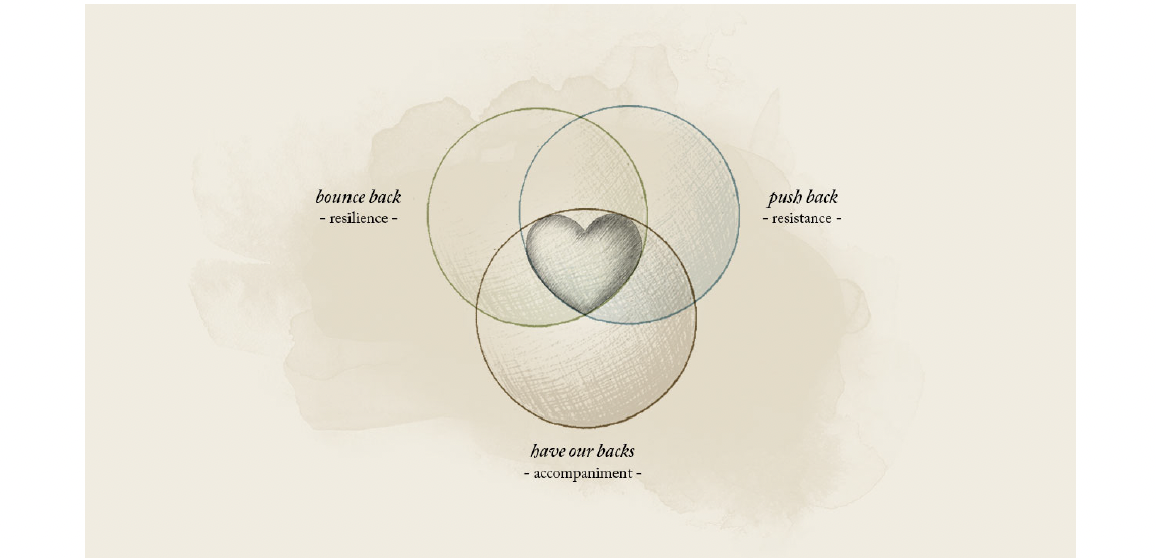Editor’s Note: In a new piece for his archive, John Paul Lederach, Laura Webber and Zoë Newcomb reflect on the challenge frontline partners face in staying “alive and whole in a world of hurt.” Below is an excerpt from the introduction, and the full piece is available on the archive.
Over the past years working in longer-term relationships through trust-based approaches to philanthropy, a key learning agenda for the Peacebuilding team at Humanity United emerged around what we might call a pressing “harm” dilemma:
In the face of daily crises, how do leaders and communities persevere and stay vibrant, agile, and creative across decades and lifetimes?
At essence, we wanted to better understand, uplift, and invest in what frontline partners require to stay innovatively engaged and healthy while they forge platforms with long-term clarity of purpose.
We participated in conferences and research initiatives. We engaged in and supported what commonly is referred to as well-being approaches. In fact, within our peacebuilding portfolio we created a learning and grantmaking pod dedicated to healing and well-being. Yet we continuously felt that well-being did not adequately represent the nature of the challenge, our duty of care, nor the exemplar lived experience of long-term proximate peacebuilders.
Listening more carefully into strategies of response to the harm dilemma, three distinct but not incompatible dimensions consistently emerged. Each attended to a significant aspect of the challenge to stay alive and whole in a world of hurt.
The daily grind unfolding over years, decades, and lifetimes highlights the need for personal renewal, restoration, and care to balance and persevere through the long journey. This voice emphasizes a focus on resilience, the ability to bounce back and stay agile and clear on ultimate purpose.
The constant crisis-flow of renewed forms of harm in everyday life layered on systemic generational suffering calls for rising up, speaking out, and crafting creative transformative response. This voice focuses on the need for resistance and a systems change orientation — the need to constantly push back against and face down the patterns of harm.
Most proximate peacebuilders and frontline social change activists understand and imagine their health as a collective journey, a community-based response to social healing. These voices appeal to felt mutual presence, the embodiment of alongsideness and having each other’s backs. In a word, accompaniment as practice and strategy.
Bounce back. Push back. Have our backs.
These dynamics flow below and beyond a more superficial understanding of well-being, which in the popular imagination tends to pull more narrowly toward practices of personal renewal. While these voices initially appeared to be in tension, we found that when held together, the whole was much greater than the sum of its parts. Together, they illuminate scale at depth, balanced and accountable relational dignity, and the integration needed to continuously engage harmful systems that produce permanently emergent crises.
Read the full piece here.
